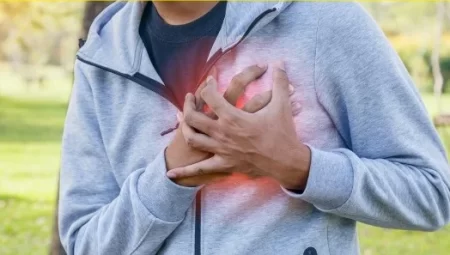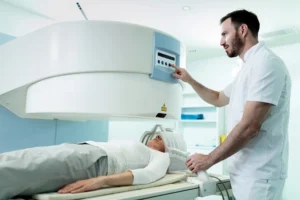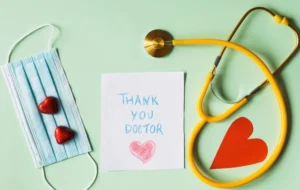Treatment for Arrhythmia (When Your Heart Rhythm Isn’t Normal)
- Updated on: Jul 12, 2024
- 4 min Read
- Published on Apr 19, 2021


Treatment may not always be needed if you have an arrhythmia. In most cases, arrhythmias are considered harmless and left untreated.
Treatment for arrhythmia is only required if the symptoms put you at risk of a more serious arrhythmia or a complication, or if the symptoms are significant.
Heart arrhythmia treatments
Common arrhythmia treatments include medicines, medical procedures, and surgical procedures. Your doctor will recommend a suitable treatment if you experience serious symptoms, such as dizziness, chest pain (angina), or fainting. Read about arrhythmia symptoms.
How your arrhythmia is treated depends on the type of condition you have – whether it is a fast or slow arrhythmia or it is a heart blockage. Various available treatments are as follows:
Medicines
Medicines can be useful in controlling heart rhythms. They can slow down a heart that’s beating too fast or restore a normal rhythm.
Some of the medicines that are used to slow a fast heart rate are:
- beta blockers (atenolol, metoprolol etc)
- calcium channel blockers (diltiazem, verapamil)
- digoxin ( such as digitalis)
Few examples of medicines that can be to restore a normal heart rhythm are:
- sotalol
- amiodarone
- ibutilide
- quinidineprocainamide
- disopyramide
- propafenone
- dofetilide
- flecainide
There is no reliable medicine currently that can increase a slowed heart rate. If there is a too slow heart rate, it is usually treated with pacemakers.
Other medicines for treatment of atrial fibrillation are:
- Warfarin (such as Coumadin®)
- Dabigatran
- heparin
- aspirin
These are some examples of blood-thinning medicines and help in avoiding clogging.
Electrical Cardioversion
If medicines are not able to control irregular heart rhythm, cardioversion may be recommended. A patient is administered anesthesia and an electrical shock is delivered to the chest wall. This synchronizes the heart and restores the normal rhythm.
Catheter Ablation
High-frequency electrical energy is delivered through a catheter to the heart that causes the abnormal heart rhythm. This energy delinks the pathway of the abnormal rhythm.
Generally, ablation is used to treat atrial flutter, atrial fibrillation, and some atrial and ventricular tachycardias.
Electrodes are positioned at catheter tips that use radiofrequency energy to damage (ablate) a small portion of the heart tissue and create an electrical block along the pathway that is causing your arrhythmia.
Implantable devices
Arrhythmias can be treated with the use of an implantable device.
Pacemaker
A pacemaker is an implantable medical device that helps control irregular heart rhythms. It consists of a small housing that is placed under the skin near your collarbone through a minor surgical procedure.
An insulated wire called lead extends from the device to your heart.
The pacemaker detects an abnormal heart rate and transmits electrical signals causing stimulation of the heart to beat at a corrected pace.
Implantable cardioverter-defibrillator (ICD)
People who are at risk for ventricular fibrillation are treated with implantable cardioverter defibrillator (ICD). It is similar to a pacemaker.
The ICD monitors your heartbeat. If it detects a dangerous ventricular arrhythmia, it transmits an electric signal to the heart to restore a normal heartbeat.
Your doctor will recommend it if you are at a high risk of developing a very fast heartbeat in the lower half of your heart (ventricular tachycardia or ventricular fibrillation).
If there is a risk of sudden cardiac arrest, your doctor may still recommend it.
An ICD is operated by a battery that’s implanted under the skin. Leads containing electrode extend from the ICD through veins to the heart.
Surgery
Sometime, surgery may be needed:
Maze procedure
During this procedure, a surgeon will make a series of small cuts in the atria. These cuts prevent the occurrence of disturbed electrical signals. The scar tissue doesn’t conduct electricity and disconnects the electrical impulses that cause arrhythmia.
Coronary bypass surgery
If you have coronary artery disease in addition to arrhythmias, or if it is the cause of arrhythmia, your doctor will perform coronary bypass surgery. The procedure improves the blood flow to your heart.
Lifestyle Changes
Sometimes, lifestyle changes can help arrhythmias.
- If arrhythmia occurs more often when you perform certain activities, you should avoid them
- Stop smoking
- Limit your alcohol consumption
- Limit or stop using caffeine
- Stay away from the medicines that trigger arrhythmias
Other Treatments
- Vagal maneuvers: some types of movements that the patient can do themselves can stop certain arrhythmia
- Holding your breath and bearing down
- Gagging
- Immersing your face in ice-cold water
- Yoga
- Relaxation techniques
- Meditation
Treatment goals
The goal of treating arrhythmias can be any of these:
- Control the heart rate
- Restore your normal heart rhythm
- Treatment of a heart disease that may be the cause of arrhythmia. Read about causes of arrhythmias.
- Reduce other risk factors
- Prevent blood clots from forming to reduce stroke risk in people with AFib
Staying safe if you have an arrhythmia
If you have an arrhythmia, it can sometime be dangerous. You must immediately inform someone close to you in such a case.
If you are driving, call someone from the family and tell the vehicle and traffic regulation agency, and immediately stop driving.
If your job involves some level of dangers or security concerns such as working from a height or with machinery that could be potentially dangerous, you must stop the work immediately. Meet a doctor, and he or she will guide you about the treatment plan after proper diagnosis.












